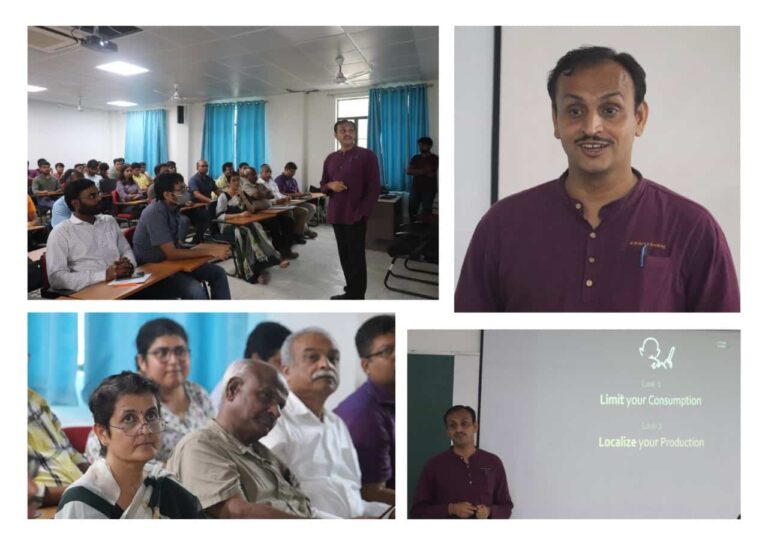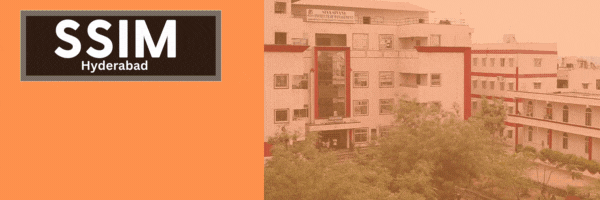‘Energy Swaraj Yatra’ solar bus made a stopover at the Indian Institute of Management, Bodh Gaya on 27 July 2022. These 11 year-long missions- ‘Energy Swaraj Yatra (2020- 30)’ is being undertaken by Dr. Chetan Singh Solanki, popularly known as the “Solar Man of India”. He is a professor from IIT Bombay, Brand Ambassador of Solar Energy for Govt. of Madhya Pradesh, and Founder of the Energy Swaraj Foundation, who has pledged not to go home until 2030 and live & travel in the solar bus so as to bring awareness and encourage actions toward climate change mitigation and the adoption of 100% solar energy by the masses. Prof. Solanki also delivered a thought-provoking presentation on “Energy, Climate change and I” for the benefit of the students at the institute. Dr. Vinita Sahay, Director, IIM Bodh Gaya, Faculty and Staff of the institute had an interactive session with Prof. Chetan Solanki and discussed about the importance and practical implementation of renewable source of energy.
Orientation of Batch MBA VIII and PhD III at IIM Bodh Gaya
The yatra, which began in November 2020 from Mumbai, is designed to create a public movement towards 100% adoption of solar energy. The ‘solar bus’ reached IIM Bodh Gaya after covering more than 25000 km across 16 Indian states. Prof. Solanki’s ‘mobile home’ is equipped with 3.2 kW solar panels and 6 kWh of battery storage. It also has a 3 kVa inverter. The bus runs on diesel, but all lights, cooler, cookstove, and other appliances inside it are solar-powered.
On Wednesday, Prof. Solanki addressed the students on the issue of climate change. He quoted “We have so much power, we can change the direction of life the way we want” referring to how much the actions of human beings affect the Earth. Speaking about the relationship between the economy, the environment and human happiness, Mr. Solanki urged the students to ponder about how the lives of every social being have changed over the past half century. He talked about how humans destroy the very things that are crucial for their survival by engaging in air, water and land pollution. He talked about taking drastic and immediate actions to limit global warming, an increasingly troublesome problem, to 1.5 – 2 degree celsius, above which the planet would slowly collapse leading to human extinction. ‘Energy is everything’ Mr. Solanki stresses on energy usage as it is a major cause of global warming due to the release of numerous greenhouse gasses. He stated two laws that would help in controlling energy usage
- Limiting Consumption
- Localizing Production
IIM Bodh Gaya concludes its 4th Convocation Ceremony for the MBA batch of 2020-22
He then went on to mention the AMG strategy that can take us one step closer to Energy Swaraj. The AMG strategy tells us to avoid energy usage by 1/3rd of what we use today, minimize by 1/3rd and generate only 1/3rd of what we generate today. Mr. Solanki ended this eye opening seminar by urging all students to be the change they want to see in the world, as rightfully stated by Gandhi Ji.
IIM Bodh Gaya celebrates International Day of Yoga
IIM Bodh Gaya as an Institute of National Importance has in fact already made a socially conscious choice in alignment with Sustainable Development Goals (SDG). A negative or zero carbon footprint by IIM Bodh Gaya will go a long way in contributing to development of alternative ways to sustainable existence. The socially conscious green choice will further compliment the efficient financial management and to become an energy ‘self-sufficient’ campus. It is learnt that IIM campuses all over the country are struggling to cut energy costs in their day-to-day functioning. IIM Bodh Gaya is taking a proactive step by proposing to set up a Grid interactive 3.0 MW Solar Plant through Renewable Service Company in its soon-to-be functional new campus to reduce the carbon footprint. Based on his inputs and suggestions, the institute has also pledged to reduce electricity consumption, promote energy literacy training for all students, and ramp up solar power installations in the Bodh Gaya campus.





